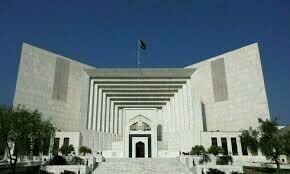RAWALPINDI, April 25: The wheat harvesting in the entire barani belt has commenced. However, the experts of Punjab agricultural department were not very hopeful of surpassing last year’s wheat production.
Last year, barani areas produced 90.43 million tons wheat, achieving yield average of 24 maunds per acre. In terms of acreage, the area under cultivation has slightly increased this year. Last year wheat was sown on 0.336 million acres, and this year, it showed a marginal increase with 0.337 million acres. This meagre increase may not have any significant effect on the overall production, experts say.
Agricultural experts do not paint a rosy picture of agricultural production in barani areas. They say availability of water plays vital role in the barani areas. The effects of climate change have started appearing as the pattern of rainfall this year was different from last year. During the mid-season dry period, farmers mainly depend on rainfall and have no other source of water.
When contacted, the district officer agriculture, Zahid Hussain Zaki said small dams are not sufficient to meet the water requirements of Barani areas. He called for developing small ponds in abundance to store water for use during dry season. The development of small ponds would also help control water losses, he said.
During the mid-season dry period (November to February) this season, barani areas received only 20.5 mm of rainfall as against 148.2 mm during the same period last season. In contrast, rainfall during the early dry period, which agricultural experts call sowing period, barani areas received 67.7 mm rainfall last season as compared to 210.5 mm this season, which indicates that there was much amount of rainfall at the time of sowing wheat — a healthy sign for wheat crops.
However, during the late season dry period (April) barani areas received 170.4 mm rainfall this season as compared to 127.2 mm during last season. Experts were of the opinion that rainfall should have been medium during late season. Such a high rainfall during the late season could destroy the standing crops.
Prospects for future crops in barani areas are at stake as these rain-fed areas were not getting enough combined quota of mechanised agricultural support.
Harvesting charges in barani areas were too high as compared to the charges being applied in irrigated areas. The farmers of barani areas pay between Rs2,400 to Rs3,500 per acre as compared to Rs1,500 per acre in irrigated areas. This high cost of harvesting ultimately increases the cost of production and not beneficial for the farmers, experts say.
The experts say that the farmers of barani areas should be provided more support from the Punjab government. At present, even there is no support for moisture conservation which the wheat crop needs immediately after harvesting, they say.
There is a dearth of mechanised agricultural input in barani areas. As the harvesting season has commenced, farmers of barani areas were arranging combined harvesters from neighbouring areas.
The manpower in barani areas per square kilometres is quite less as compared with irrigated areas where abundant manpower is available.
The main reason attributed to the high cost of harvesting is rural migration to urban areas and migration to overseas for better economic benefits. A great number of people from Barani areas of Rawalpindi are settled in a number of European countries.













































Dear visitor, the comments section is undergoing an overhaul and will return soon.